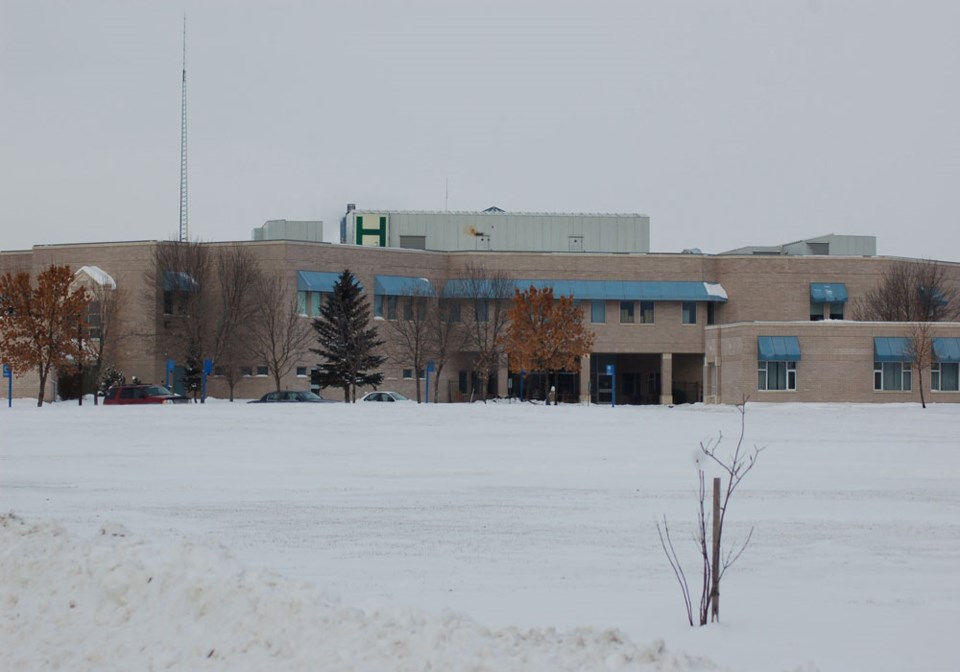A report on progress being made regarding efficiencies in the delivery of health care in the Sun Country Health Region became part of the agenda on Feb. 25 when the board of directors held their monthly open business session.
The Lean report was delivered by CEO Marga Cugnet in the absence of the Kaizen promotion office manager, Chris McKee.
She noted a workshop devoted to developing efficiencies regarding everything from discharges to long-term care and consistent timeline management will be conducted at St. Joseph’s Hospital in Estevan from March 23 to 27.
Cugnet also spoke of progress being made on screening patients, bed availability and how many long-term care residents are currently living in care homes that were their second choice, as opposed to their preferential sites.
She also spoke of efficiencies introduced at the hospital laboratory in Weyburn, with references to walking distances, storage and work flow (replication of duties).
Filling out Workers’ Compensation Board forms has been made quicker through electronic filing and eliminating time spent on monthly reports by facility managers. Human resources vice-president Chris Cecchini had noted earlier that time saving has been introduced with the assistance of disability consultants who help with file management, form filing and return-to-work and claim status reports. He told the Mercury that one of the consultants was already on the Sun Country payroll, while the other had worked with Sun Country previously and was familiar with the processes and personnel as well as the WCB procedures.
Janice Giroux, vice-president of community health for Sun Country, provided an update on flu inoculations among staff members, noting that nearly 90 per cent of the staffers had received the flu shot and there had been no major outbreaks of influenza in any of the healthcare facilities so far this winter. Staff members who have not been inoculated are required to wear a mask while on the job.
Giroux also noted that efficiencies were incorporated with the administration of the flu shots this year since they were assigned to more people other than public health nurses. This year the roster included doctors, hospital-based nurses and home care nurses with 15,860 people receiving the shots this year without any major lineups. She also noted that only 32 per cent of the children in the health region received the flu shot this year compared with 40 per cent last year, which she found surprising since the “shot” in question for youngsters is a simple “squirt in the nose.”
The major flu strain confirmed by provincial laboratories this year was not the one that dominated the flu inoculations schedules, thus it was not as effective with 23 per cent of the recipients still having to battle the flu bug since they contracted the different strain.
On another topical item, she said there had been only one case of measles in the Sun Country region in 2014 and none so far in Saskatchewan in 2015.
There was also information released regarding Sun Country’s preparedness for any signs of Ebola with regards to co-ordination of activities and responsibilities if a case of Ebola was diagnosed in the region. These plans included emergency preparedness, the deployment of a multi-disciplinary team that has been trained and have rehearsed their routines in a table-top exercise that included members of the Saskatchewan Union of Nurses who got involved in the planning and training processes.
Cecchini noted that six Sun Country employees had received initial training and they have since trained 45 others so that all areas in the region are represented with people who have been trained in processes to follow if Ebola surfaces anywhere in southeast Saskatchewan. He said the team training has included six physicians, including one who has worked with Ebola patients in Africa as a volunteer and that 15 more health care professionals will be trained, to bring the total to 60 who will be well versed in how to react in the event of an Ebola diagnosis.
“This is tied to what is happening in the rest of the province,” said Giroux. “The fear factor has lessened now because the potential is lowered, but there is still the need to be prepared.”
John Knoch, vice-president of corporate and finance for Sun Country, said all the supplies and materials required to combat Ebola had been purchased and delivered and were on hand for quick distribution.
Earlier in the meeting, a report was delivered regarding a pilot project at Weyburn General Hospital to reduce inappropriate public visits to the emergency room. The staff and public education campaign is now showing more positive results as the records show a 31 per cent reduction in the number of people using the emergency room for minor health issues that could otherwise be tended to by alternate health providers.
There were updated reports on other target areas that were identified for improvements such as detecting and reporting unsafe situations, leadership development and injury reductions.
In the clinical placement program, it was noted that six registered nurses in training have been assigned to St. Joseph’s Hospital in Estevan and one with public health staff in Estevan.




